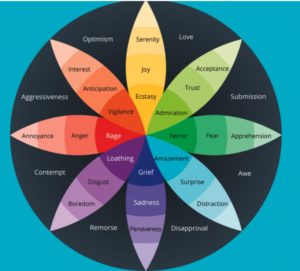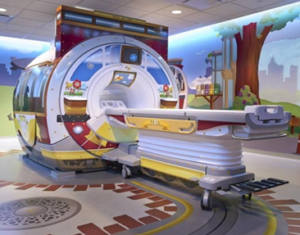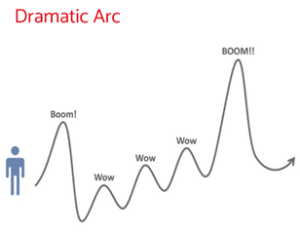SDinGov 2023 – The volunteering journey continues and my favourite sessions
Last year I started volunteering at conferences. I continued this journey at the SDinGov (Service Design in Government) conference in September 2023. In this post, I share my top sessions and how volunteering supports my professional development.
Why I am volunteering at conferences
I began my volunteering journey with other organisations nearly six years ago. Back then volunteering helped me to re-build my confidence after a very difficult time in my private life.
Nowadays I want to gain experience in organising and administering large scale events, cooperating with event team colleagues, speakers and delegates. I also intend to move slowly towards public speaking. When I was looking for an affordable way to achieve this I turned again to volunteering, this time as part of my personal development.
About SDinGov
SDinGov is an international community event for professionals involved in designing and commissioning public services. The conference is organised by Software Acumen and celebrated its 10th anniversary in 2023.
The conference programme and some of the slides are on the SDinGov website and on the SDinGov Slack space. This allows me to refresh my memory, deepen my understanding of the topics and continue my development by referring back to the presentations.
My top 3 sessions at SDinGov 2023
Kerrie Hughes: Once more, with feeling
90 to 95% of our decisions are emotional, 5 to 10% are rational.
Kerrie explained the role of emotions and how feelings drive our behaviours and actions with the help of Robert Plutchick’s emotion wheel.

Emotion wheel by Robert Plutchick
She encouraged us to design for emotions. She used the very impressive example of how a children’s hospital transformed the experience of getting an MRI scan to help children overcome their fears. The hospital painted and decorated the MRI scanner and the room to create an adventure scenery. Staff role-played characters during the experience and handed out goody bags.
This resulted in:
- a drop in the need for sedation of the young patients from 80% to 10%
- more scans per day
- 90% increase in patient satisfaction

The MRI scanner after the transformation.
Kerrie recommended the following tools to design for emotions:
- mapping emotions through customer journey maps
- using the peak-end rule for the memories of events (identify the peak and design for it/experiences must end well)
- measuring emotions for moments that matter and across the journey or service
- capturing the levels of engagement with the help of a dramatic arc that reflects the organisation and customers

An example of a dramatic arc
My biggest takeaway from Kerrie’s session was to not only think about the user’s journey and transactions they want to complete, but their feelings, emotions and pressures they might face, too. The more we take these things into account, the better will be their experience of our web content and processes.
Rochelle Gold: The Journey to Eutopia
Rochelle showed how the journey to eutopia, an attainable and realistic concept of a good place, can be approached. But she also warned that utopia, a perfect world or a perfect service, does not exist.
She shared the NHS journey to eutopia through:
- being inclusive to all viewpoints
- letting go of perfection (utopia can lead to dystopia)
- things that just had to be done during the pandemic. User research had to be turned around within 24 hours to implement small improvements. It would have been unethical to delay improvements that had the potential to save lives.
- a community that helps through adversities
- determining the one change that can be done as a quick fix and that makes a difference (for example, how the NHS had to decide what updates were required at short notice at the beginning of the pandemic)
- recognising that the journey is more important than the destination
For me, the encouraging message was that our work does not need to be perfect all the time. Depending on the circumstances, reacting quickly to changes and making small steps might already be progress.
Tommy Portillo: Designing for people with dementia
Tommy Portillo is a Senior Service Designer for Alzheimer Scotland and a part-time product design lecturer at the University of Dundee. During his talk ‘Designing for people with dementia’ he highlighted how inclusive product and service design can enable a person with dementia to lead a fulfilling life.
Tommy explained the ripple effect inclusive design creates, using the example of a transparent kettle.
With a transparent kettle, an individual can see if water is in the kettle or if it is empty. As the kettle has a blue light, they can also see if the kettle is on or off.
The design of the kettle creates a ripple effect for a person with dementia:
- first ripple:
- they drink several cups of tea a day
- they are hydrated and healthy
- second ripple:
- their home is their happy place and they stay at home
- they have a social life
- third ripple:
- they can still live their life to the fullest with social and financial stability
It is amazing how we can improve an individual’s quality of life by creating well-designed products and services and taking their needs and challenges into consideration.
How volunteering at SDinGov 2023 benefitted me
New knowledge
I gained insights into how colleagues approached changes to their systems and processes driven by user centred design. Kerrie Hughes’ talk especially exposed me to theories and tools I had not heard about before (for example, the emotion wheel by Robert Plutchick).
The whoops-a-daisy and killer whales session on Wednesday afternoon provided a lot of encouragement and comfort. At this session, attendees shared the fabulous work they have been involved in during their careers. But they also mentioned scenarios when things did no to plan and went downright wrong.
A growing network
SDinGov and the social events in the evenings provided a great chance to catch up with delegates I met before and to make new contacts.
I can stay in touch and get valuable updates from content and UX colleagues through LinkedIn.
I feel more at home in a conference environment
Just over a year ago I was still new to supporting sessions and facilitating Q&A sessions. Now they are second nature.
I have also become better at troubleshooting when things do not go to plan. I have gained more confidence in deciding what I can resolve myself and when to involve colleagues or partners at the venue.
Further conferences await in 2024
I will again be part of the event team for conferences held in Edinburgh during 2024.
Participating in conferences is demanding and can be tiring due to long days. But it is so rewarding to interact with the team, the delegates and speakers, to feel valued and to be in demand for this type of volunteering.
Read more about our team’s conference experiences
We are regularly visiting and contributing to events and conferences. Watch out for more insights shared by members of the Prospective Student Web Content Team.




A great read. Thanks for sharing Heike.
Wish I could’ve made it to SDinGOV this year. The sessions you wrote up sounded great. We’re very lucky to have this happen on our doorstep.